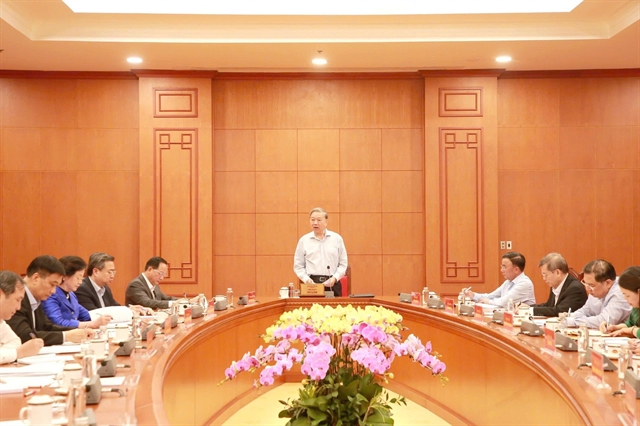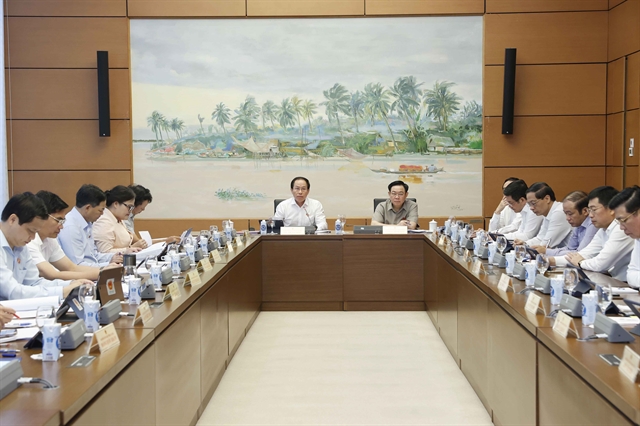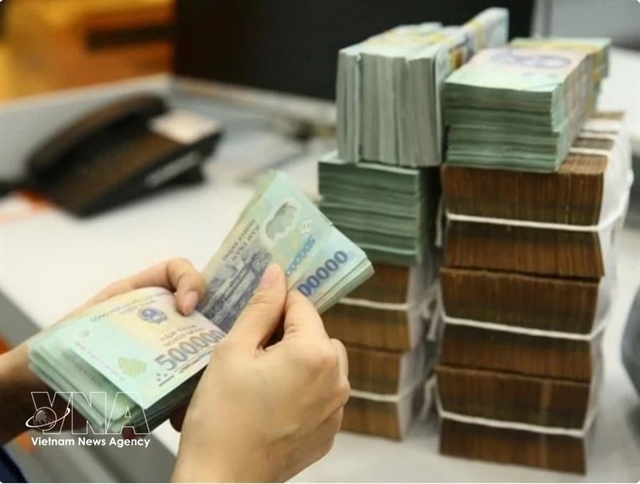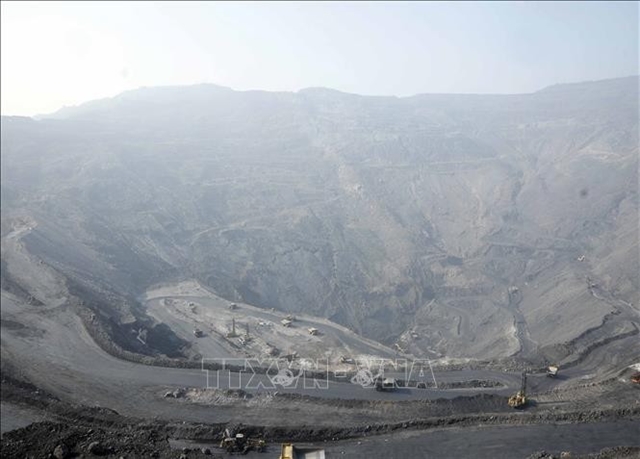 Politics & Law
Politics & Law


|
| Deputies discuss socio-economic situation in 2023 and the socio-economic development plan for the final three months of 2023 and 2024. VNA/VNS Photo |
HÀ NỘI – National Assembly deputies acknowledged in their discussion on Tuesday that, despite significant difficulties and challenges, the Party, State, National Assembly and Government have demonstrated swift, targeted and effective leadership in alignment with a multitude of crucial policies and directives.
The discussion focused on the socio-economic situation in 2023 and the socio-economic development plan for the final three months of 2023 and 2024.
Over the previous six months, Việt Nam has admirably overcome obstacles and made significant, comprehensive strides, setting the stage for socio-economic advancement, growth and the fortification of our long-term economic competitiveness. Việt Nam continues to distinguish itself as a prominent player on the global economic landscape.
Deputy Nguyễn Anh Trí from Hà Nội commended the Government's report, as presented by Prime Minister Phạm Minh Chính during the opening of the 6th session of the 15th National Assembly, for its remarkable accuracy. Positive aspects had been seen in Việt Nam's socio-economic landscape in 2023, including some remarkably bright areas in the global context, with a robust macroeconomy and a GDP growth rate of 5.33 per cent, complemented by a gradual increase in exports over the months.
Trí said that in the initial nine months of 2023, Việt Nam's GDP was estimated to have reached approximately US$435 billion, propelling the country into the ranks of the world's top 40 economies.
The agricultural sector exhibited steady growth, increasing by 3.38 per cent, serving as a dependable pillar of the economy during challenging times. Several key infrastructure projects had been completed, and numerous new ones had been initiated.
Foreign affairs and international integration activities had been conducted with vitality and consistency, constituting a highlight of 2023, marked by several historic achievements. These achievements paved the way for fresh opportunities to develop the nation and enhance Việt Nam's role, standing and reputation on the global stage, he said.
He further highlighted that, to date, Việt Nam had forged comprehensive strategic partnerships or strategic partnerships with all five permanent members of the United Nations Security Council and many G20 nations. These partnerships would contribute to maintaining a peaceful and stable environment for the homeland's growth and safeguarding.
"This is a success that has brought immense joy to the people through state visits, working visits, and agreements signed by heads of state and international leaders who have visited Việt Nam since the beginning of 2023,” he noted.
Fiscal policies and zoning to attract investment, address regional disparities
Deputy Hoàng Văn Cường from Hà Nội raised concerns about the current corporate debt situation, noting that some businesses had dissolved or were at risk of dissolution. Additionally, the state's support policies for business loans had almost reached their limits, making it challenging for businesses to secure loans, despite the State Bank having substantial funds at its disposal.
"If we implement effective policies, such as preferential interest rates for loans, it will significantly boost the economy by channelling a substantial amount of capital into production and business. With new and more positive policies, we can expect substantial economic changes," Cường said.
Regarding the economic forecast for 2024, he highlighted the expected challenges, particularly the significant impact of geopolitical and global economic instability on Việt Nam's domestic economy. To achieve the growth target of 6-6.5 per cent in 2024, Cường stressed the need for a counter-cyclical fiscal policy.
This should include continuing to implement the resolution to reduce VAT by 2 per cent, with an extension until the end of 2024. Moreover, the reduction and even exemption of land taxes for businesses could play a crucial role in revitalizing production and business without affecting the fundamental tax policies.
Regarding public investment, Deputy Cường acknowledged that while there had been positive outcomes, the progress had not met expectations. He suggested a shift in approach, advocating policies that involve collaborating with large corporations to foster high-tech and artificial intelligence industries, thereby promoting the country's economic development.
Deputy Nguyễn Anh Trí also emphasised the importance of a balanced approach to investment allocation to encourage investment in regions facing difficulties.
"Prioritising investment in regions that are easy and favourable for economic development may not be the wisest approach. It's time to address the difficulties in less-developed areas to enhance social security, create jobs, stabilise income and improve living standards for people in these regions," Trí said.
Politburo member, Secretary of the City Party Committee and Head of the Hà Nội National Assembly Delegation Đinh Tiến Dũng also expressed concerns about the challenging credit situation, calling for a comprehensive understanding of why banks have excess liquidity while businesses struggle to access it. He stressed the importance of addressing this bottleneck to facilitate production, foster business growth and promote overall socio-economic development.
Furthermore, Dũng brought attention to a concerning situation regarding current real estate projects.
"I cannot determine the exact number of real estate projects throughout the entire country, but Hà Nội alone has 712 projects that have been delayed for years, lying dormant and causing significant frustration among the public. Valuable land remains unused,” he said. He suggested that the National Assembly provide guidance for resolving this issue after conducting on-site assessments and surveys.
"Addressing this issue is of utmost importance. If we can resolve the real estate problem, it will have a ripple effect on other factors, ultimately contributing to macroeconomic stability, job creation, income stability for workers and the stimulation of economic growth," he said. VNS




